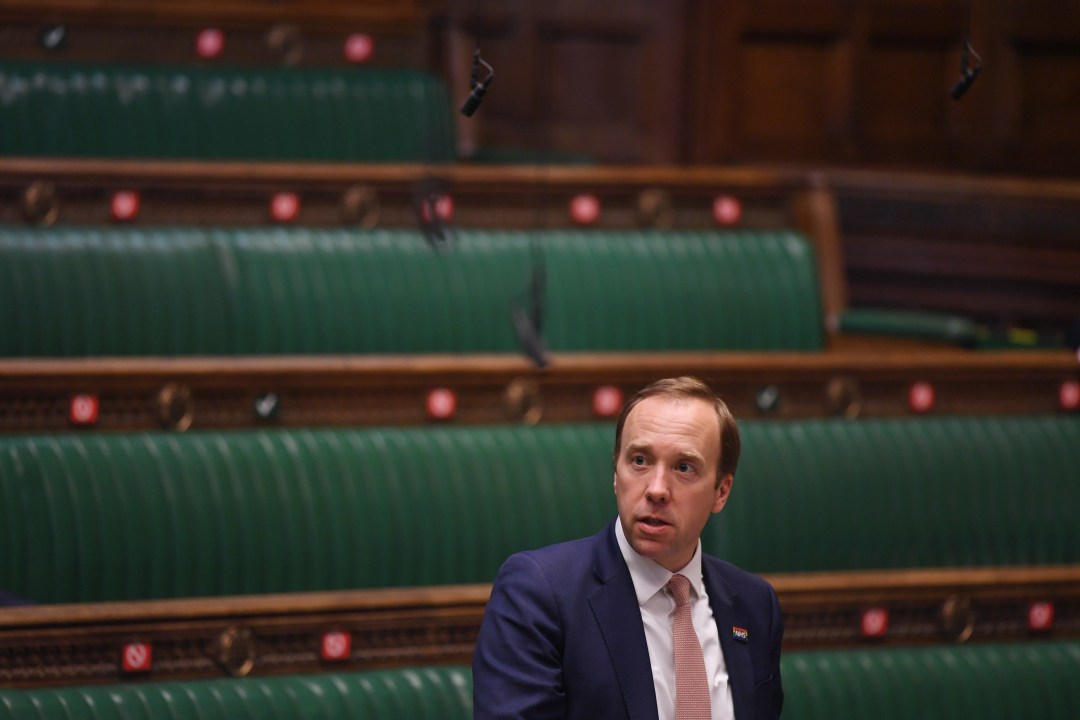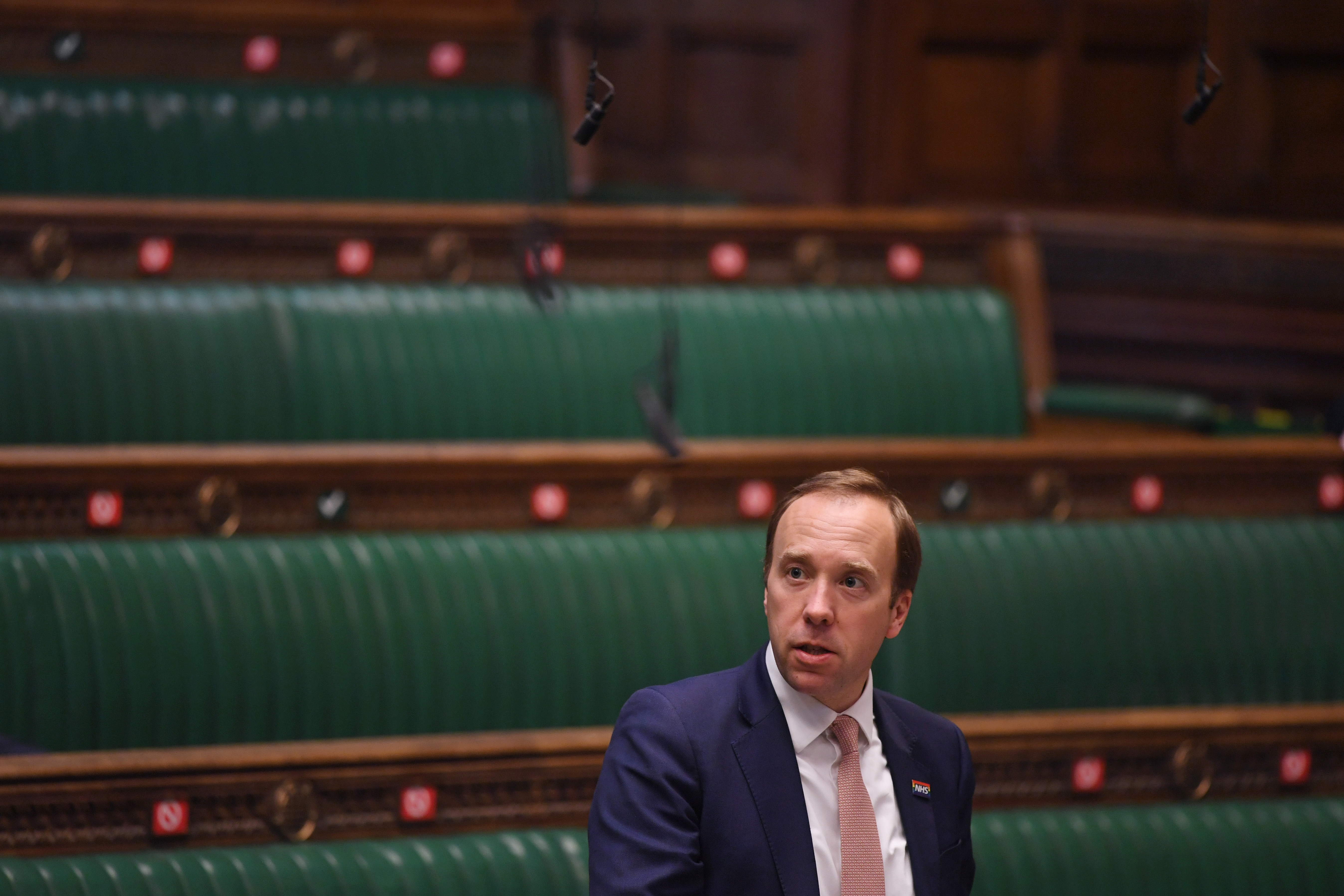It was always likely that the evidence given by Dominic Cummings to the health and science joint select committee inquiry yesterday would have quite an impact. Cummings certainly has a flair for communication and a revolutionary zeal.
On top of that, he has scores to settle when it comes to the Prime Minister’s conduct and his treatment of his former chief advisor. Interestingly though, one of the main targets of Cummings’s ire yesterday was Health Secretary Matt Hancock. Asked by Labour MP Rosie Cooper to rate the performance of the Health Secretary and the department, Cummings went for the jugular: ‘I think the Secretary of State should have been fired for at least 15 to 20 things, including lying to everybody on multiple occasions in meeting after meeting in the cabinet room and publicly.’
Cummings accused Hancock of lying about the former NHS chief Simon Stevens and Chancellor Rishi Sunak blocking PPE procurement; of lying about people being discharged from hospitals to care homes without a Covid test; and of lying about everyone being able to get the treatment they needed in the first wave.
Cummings also claimed that he heard Hancock discuss the possibility of blaming the chief medical officer Chris Whitty and chief scientific officer Patrick Vallance if things went badly wrong.
Hancock is infamous in the NHS for his attempts to shift blame when necessary
He then alleged that Matt Hancock’s pledge to reach 100,000 tests a day by the end of April 2020 was a major distraction which distorted the government’s priorities: Cummings called it ‘disgraceful, criminal behaviour that caused serious harm.’
These are very serious allegations and, so far, are not supported by corroborative witness statements or documentary proof. Cummings claims to have a corroborating note which will prove that the former cabinet secretary Mark Sedwill investigated Hancock’s PPE claims about Stevens and Sunak and found them untrue. Cummings has volunteered to supply this note.
We will wait and see what emerges. Matt Hancock denied the allegations in the Commons this morning, and was met with strong and often jovial support from his colleagues on the Conservative benches. (We will see whether these reactions age as well as the similarly co-ordinated support for Dominic Cummings after his Barnard Castle trip.)
There was, however, a carefully qualified denial from Hancock. He told the Commons that ‘so many of the allegations yesterday were unsubstantiated’ – a telling phrase. Hancock also specifically avoided directly answering MPs’ questions about Covid-19 testing and care home discharges. This issue will not go away.
In one sense, Cummings attacking Hancock is low-risk. The Health Secretary’s chirpy assertiveness has never really masked the fact that he has often failed to deliver while in office. As the Health Service Journal revealed, his April 2020 ‘100,000 tests a day’ pledge was only met after the Department for Health and Social Care changed the way tests were counted in the official figures.
Hancock is infamous in the NHS as well for his attempts to shift blame when necessary: it is widely known that he described the test and trace boss Dido Harding as ‘my human shield’. Hancock arguably learnt this ‘blame shifting’ trick from his mentor, George Osborne, when he served as the former Chancellor’s chief of staff. And when PPE procurement failed in the spring last year, Hancock blamed everybody but the body responsible for it – the DHSC, which he has led since July 2018.
What certainly wasn’t well-known in health circles was Hancock’s alleged plan to blame chief scientists Chris Whitty and Patrick Vallance. Both men are pretty generally well-regarded in the health world and if insiders regard Cummings’s account of what happened there as credible, then some ‘punishment leakings’ against Hancock may well follow.
Hancock’s competence and honesty has important implications, not only for the Health Secretary’s own political future, but for the government’s proposed Health Bill in this parliamentary session. One key aspect of the Bill is to give the Secretary of State greater powers to intervene in and direct the NHS. This would give Hancock a greater role in the running of the NHS.
And even if you disbelieve all of Dominic Cummings’s allegations, it is indisputable that the Health Secretary was the man in charge of the department responsible for PPE procurement; for the care homes death toll; and for the long time last year when test and trace’s performance – particularly on contact tracing – was very poor.
For Boris Johnson, letting Hancock ‘take back control’ could be quite a high-risk approach.







Comments